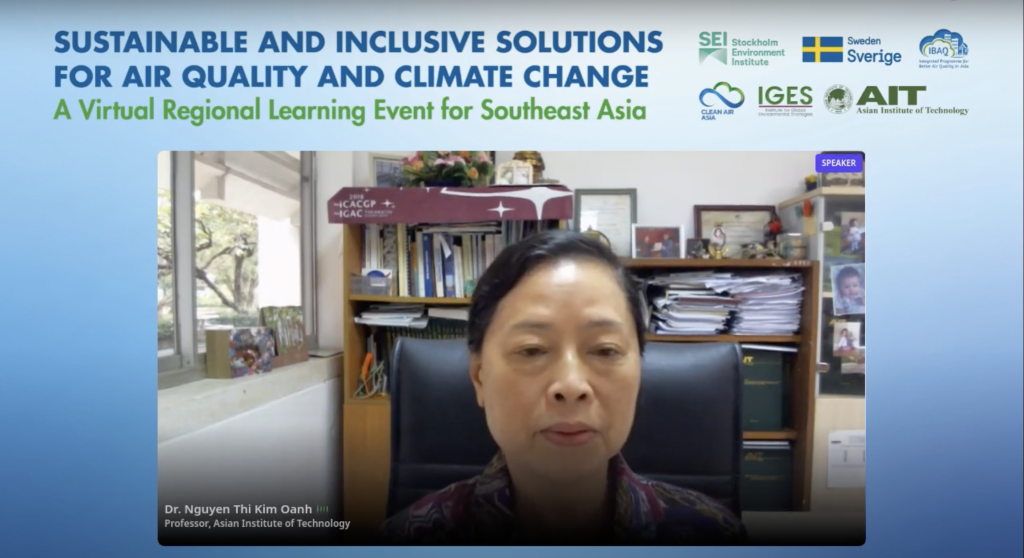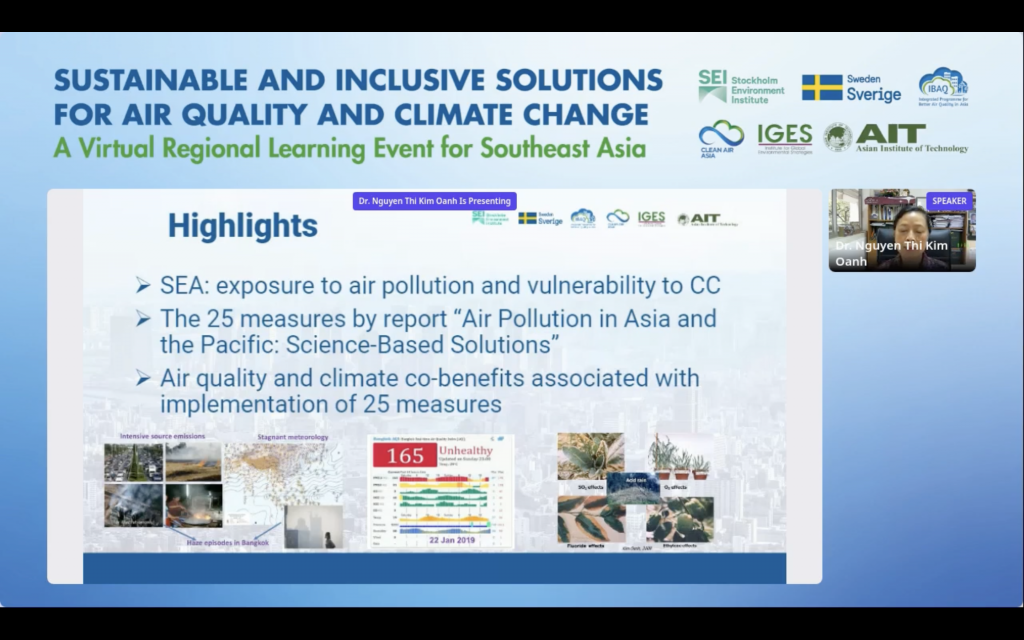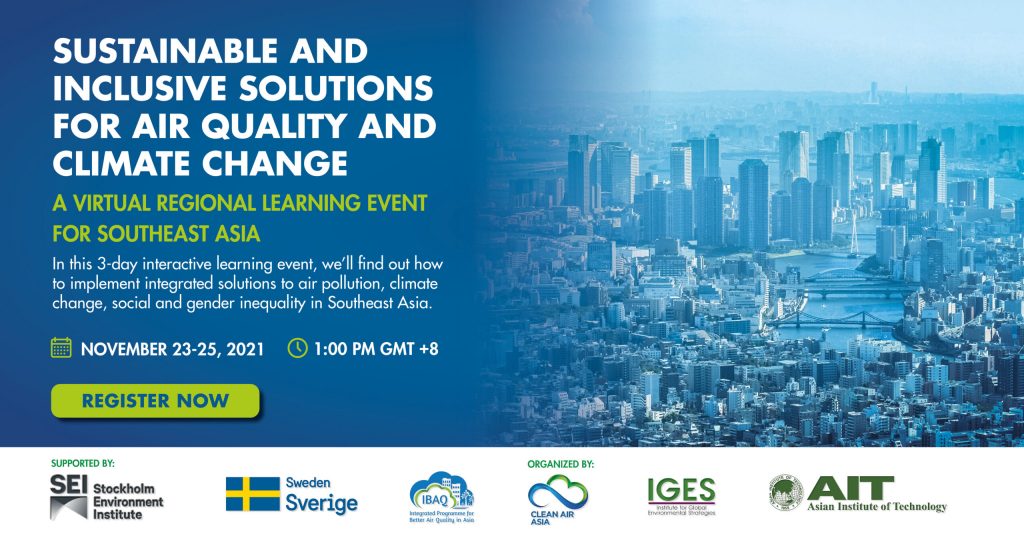By Mae Thiwari
November 23, 2021 -- The Asian Institute of Technology (AIT) joined an international forum discussing integrated solutions to air pollution and climate change with gender perspective. Among experts from the World Health Organization (WHO) and various international non-governmental organizations working for clean air, AIT Prof. Nguyen Thi Kim Oanh, a panelist at the event, gave a talk on the status of air quality in the ASEAN Region and co-benefits of the 25 clean air solutions.
The ‘Sustainable and Inclusive Solutions for Air Quality and Climate Change: A Virtual Regional Learning Event for Southeast Asia’ was held on November 23 – 25, 2021, jointly organized by Clean Air Asia, Institute for Global Environmental Strategies (IGES) and AIT, with support from the Stockholm Environment Institute (SEI). With an aim to urge political commitments to support the implementation of Nationally Determined Contributions (NDCs) and the achievement of WHO guidelines for air quality, the three-day event highlighted the co-benefits of addressing air pollution and climate change.
In 2017, not a single city in Asia was able to achieve the annual WHO air quality guideline with the then value for PM2.5 of 10 ug/m3. As a result of high levels of air pollution in Southeast Asia, half a million people in the region died due to exposure to air pollution in 2019. In that same year, around 6.7 million people were killed by polluted air globally.
Contributing to the efforts of saving lives lost by air pollution, in 2019, Prof. Nguyen Thi Kim Oanh – recently ranked among the global top 2% scientists for her single-year impact in the field of Meteorology & Atmospheric Sciences, co-authored a report on "Air pollution in Asia and the Pacific: Science-Based Solutions," published by United Nations Environment Programme (UNEP), to recommend 25 cost-effective measures. The recommendations are suited to countries in the region as they were screened from over 2,000 control options. The 25 measures address emission control for the key source sectors in the region: transport, industry, agriculture, residential combustion, biomass open burning, etc. 
At the event, Prof. Kim Oanh shared with the participants the insights into “Status of Air Quality in the ASEAN Region and Co-Benefits of the 25 Clean Air Solutions.” Concluding her talk, Prof. Kim Oanh stressed that full implementation of the 25 measures would deliver the greatest benefits for human health, while contributing to development priority goals in Asia and the Pacific. It is projected that by adopting and implementing the 25 measures, “by 2030, we will be able to avoid losing 3 million lives due to premature deaths and facing 20 million tons of crop yield loss. In addition, it can prevent the temperature rise by 0.31 Celsius degree due to global warming by 2050,” the air pollution expert Prof. Kim Oanh explained.
These devastating effects are even heightened when viewed through an intersectional lens and broken down by different social segments. Women, children, people living with poverty and other marginalized groups are more exposed to polluted air, more impacted by climate change, and less able to recover from these impacts.
Given these existing social and gender inequalities, Prof. Kim Oanh added, "Implementation of the 25 clean air solutions in Asia can simultaneously achieve many SDG goals related to Health, Food Security and Climate Change."
In addition to the sharing of knowledge and experience to address air problem problems from various aspects at various panels, the three-day event also featured virtual exhibitions to facilitate the learning from good practice. AIT also set up a virtual booth to provide an overview how the institute works to create social impact with innovation.
Prof. Nguyen Thi Kim Oanh is a professor at the Department of Energy, Environment, and Climate, School of Environment, Resources and Development. She lectures in Environmental Engineering and Management Program.
To watch Prof. Kim Oanh’s session “Translating Integrated Solutions into Inclusive Actions in Southeast Asia A Change Maker Dialogue”, visit: https://www.youtube.com/watch?v=xPMNPJSnSt8

